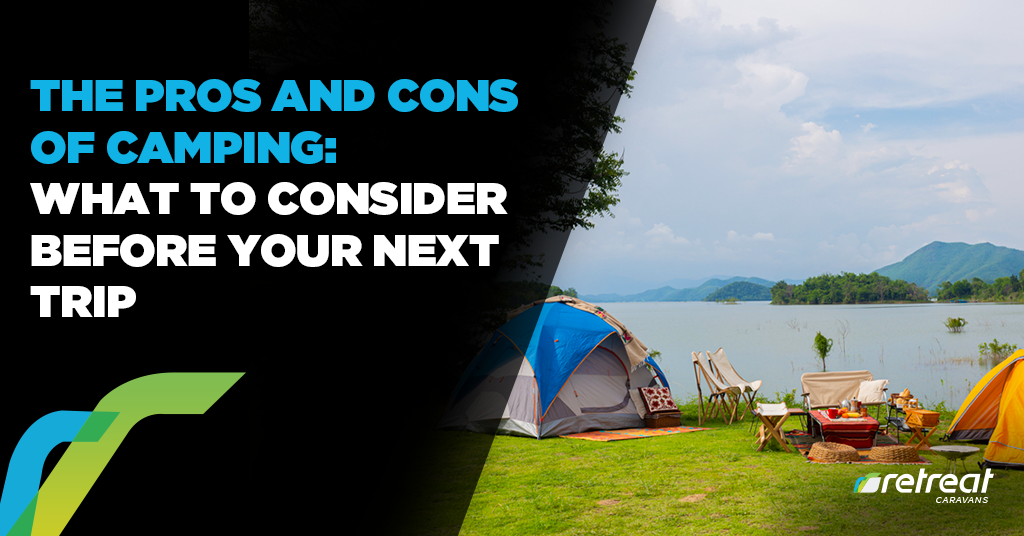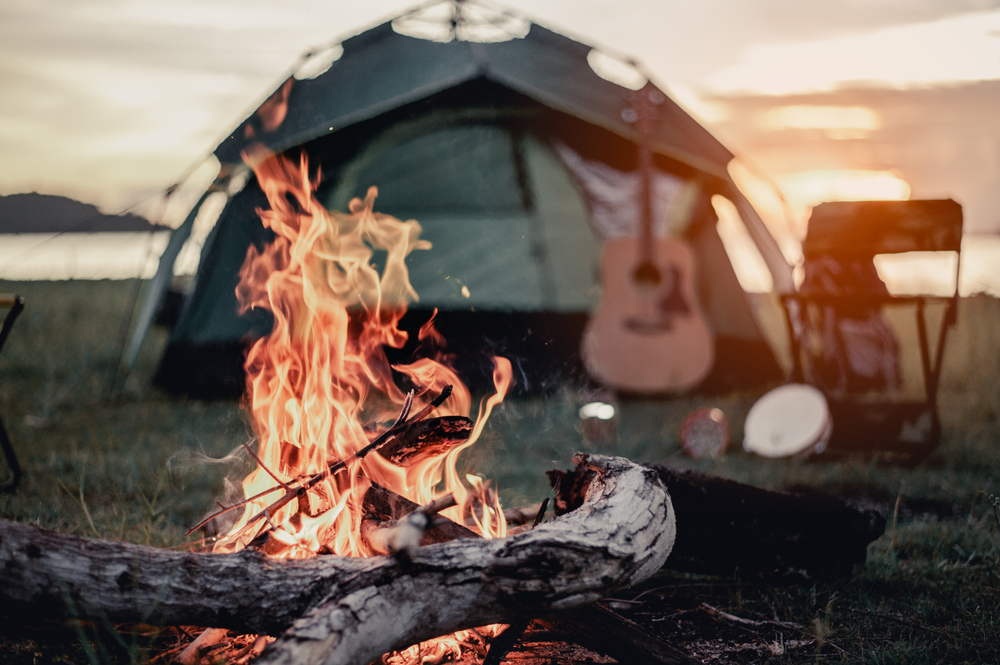
The Pros and Cons of Camping: What to Consider Before Your Next Trip
Camping is a popular outdoor activity that offers a multitude of benefits, including a connection with nature, relaxation, and quality time with loved ones. However, it is essential to understand the various aspects and considerations associated with camping to ensure a safe and enjoyable experience.
This comprehensive guide will delve into the pros and cons of camping, addressing factors such as weather uncertainties, comfort limitations, safety concerns, limited accessibility, and environmental responsibility. By exploring these points and providing practical tips and insights, this article aims to equip individuals with the knowledge and preparation necessary for a successful camping trip.
So, whether you are a seasoned camper or planning your first adventure in the great outdoors, read on to discover valuable information that will enhance your camping experience.
Benefits of Camping
1). Connection with Nature and the Outdoors
- Opportunities for outdoor activities and adventures: Camping provides opportunities for engaging in various outdoor activities such as hiking, fishing, kayaking, and more, allowing individuals to explore and appreciate the natural environment.
- Exposure to fresh air and natural surroundings: Spending time outdoors exposes individuals to fresh air, which can have numerous health benefits, including improved well-being and increased oxygen intake.
- Appreciation of wildlife and natural beauty: Camping offers the chance to observe and appreciate the diverse flora and fauna present in natural habitats, promoting a deeper understanding of the environment and its ecosystems.
2). Relaxation and Stress Relief
- Escape from the daily grind and technology: Camping provides an escape from the daily routine and technological distractions, allowing individuals to disconnect and unwind in a peaceful natural setting.
- Peaceful and tranquil environment: Being surrounded by nature promotes a sense of peace and tranquillity, helping to reduce stress levels and improve mental well-being.
- Reduction in stress levels and improved well-being: Engaging in relaxing activities such as sitting by the campfire, stargazing, or simply being present in the moment can significantly reduce stress and contribute to overall well-being.
3). Bonding and Quality Time with Loved Ones
- Opportunities for shared experiences and memories: Camping offers opportunities for shared experiences and creating lasting memories with family, friends, or loved ones.
- Quality time away from distractions: Camping allows individuals to spend quality time together away from the distractions of everyday life, fostering deeper connections and meaningful conversations.
- Strengthening relationships and fostering communication: The shared experiences and quality time spent during camping trips can strengthen relationships, build trust, and improve communication among individuals.
4). Cost-Effectiveness and Flexibility
- Affordable alternative to expensive vacations: Camping is often more affordable compared to traditional vacations, as it requires lower accommodation and travel costs.
- Flexibility to choose camping locations and durations: Campers have the flexibility to choose from a wide range of camping locations and durations, catering to their preferences and budget.
- Option to camp in various settings: Camping can be enjoyed in different settings such as campgrounds, national parks, or wilderness areas, allowing individuals to tailor their experience based on their desired level of comfort and adventure.
Drawbacks and Challenges of Camping
1). Weather and Environmental Factors
- Unpredictable weather conditions: Camping exposes individuals to unpredictable weather, including rain, extreme temperatures, or storms, which can impact the overall camping experience. It is essential to check weather forecasts and be prepared for varying weather conditions.
- Challenges of camping in extreme temperatures or inclement weather: Extreme temperatures or adverse weather conditions can pose challenges and discomfort during camping. Proper gear and clothing selection are crucial to ensure safety and comfort.
2). Lack of Comfort and Amenities
- Sleeping arrangements and comfort levels: Sleeping in a tent or sleeping bag may not provide the same level of comfort as a traditional bed. However, advancements in camping gear, such as sleeping pads or camping cots, can enhance sleeping comfort.
- Limited access to modern amenities: Camping often involves limited access to modern amenities such as electricity, running water, and showers. Campers need to adapt to a simpler way of living during their camping trip and explore alternative options for personal hygiene and comfort.
3). Potential Safety Concerns
- Wildlife encounters and precautions: Camping in natural habitats may involve wildlife encounters. It is important to be aware of local wildlife, understand their behaviours, and take necessary precautions to minimize interactions and maintain safety.
- Campfire safety and fire hazards: Campfires are a common part of camping, but they also pose fire hazards. Understanding campfire safety guidelines, practising responsible fire management, and adhering to campground regulations are essential to prevent accidents and wildfires.
- Personal safety and security considerations: Camping in remote locations may require individuals to take additional precautions for personal safety and security. Being aware of the surroundings, securing belongings, and following basic safety protocols can help ensure a safe camping experience.

4). Limited Accessibility and Mobility
- Physical limitations and accessibility issues: Camping may present challenges for individuals with physical limitations or disabilities. It is important to consider accessibility when choosing a campsite and explore options that cater to specific needs.
- Challenges for individuals with disabilities or special needs: Camping can be adapted to accommodate individuals with disabilities or special needs. Researching accessible camping options, seeking appropriate facilities, and considering necessary accommodations are important steps for an inclusive camping experience.
- Limited mobility and transportation options in remote camping locations: Remote camping areas may have limited transportation options, requiring individuals to plan and arrange for transportation logistics in advance. It is crucial to consider accessibility, availability of amenities, and services when selecting remote camping locations.
Planning and Preparation for a Successful Camping Trip
1). Researching and Choosing the Right Campsite
- Factors to consider when selecting a campsite: Considerations such as location, facilities, activities, and proximity to attractions should be taken into account when choosing a campsite.
- Utilising online resources and reviews: Online platforms and campground reviews can provide valuable information and insights about different campsites, helping individuals make informed decisions.
- Making reservations and understanding campground rules: Making advance reservations and familiarising oneself with campground rules and regulations are important steps to secure a spot and ensure compliance with campground guidelines.
2). Essential Gear and Equipment
- Tent selection and setup considerations: Choosing the right tent based on capacity, weather conditions, and ease of setup is crucial. Familiarise yourself with tent setup procedures before the camping trip.
- Sleeping gear: Selecting appropriate sleeping gear, such as sleeping bags, sleeping pads, or air mattresses, is essential for a comfortable night’s sleep outdoors.
- Cooking equipment and utensils, food storage, and preparation essentials: Planning and packing necessary cooking equipment, utensils, and food storage solutions are important for meal preparation during camping. Consider portable stoves, coolers, and lightweight cookware.
3). Safety and Emergency Preparedness
- First aid kit and basic medical supplies: As accidents or injuries can occur during camping, having a well-stocked first aid kit and basic medical supplies is essential for addressing minor injuries or emergencies.
- Navigation tools and maps for outdoor exploration: Familiarizing oneself with the camping area, carrying maps, and utilizing navigation tools such as compasses or GPS devices can help navigate trails and ensure a safe outdoor experience.
- Emergency communication devices and protocols: Carrying emergency communication devices, such as a mobile phone or two-way radios, and knowing the appropriate protocols for seeking help or contacting emergency services are important for addressing unexpected situations.
4). Packing and Organisation Tips
- Clothing and layering for different weather conditions: Packing appropriate clothing for varying weather conditions and layering techniques can help individuals adapt to changing temperatures during the camping trip.
- Essential items checklist: Creating a checklist of essential camping gear, personal items, toiletries, and other necessities ensures that nothing important is forgotten during the packing process.
- Tips for efficient packing and organisation of camping gear: Utilizing storage containers, packing gear strategically, and keeping camping gear organized can make the camping experience more convenient and enjoyable.
Environmental Responsibility and Leave No Trace Principles
Importance of Leave No Trace principles in minimising environmental impact: Leave No Trace principles to promote responsible camping practices to minimize the ecological impact of camping activities on natural environments.
- Guidelines for responsible camping and waste management: Following principles such as proper waste disposal, minimising campfire impacts, respecting wildlife, and leaving campsites as found contribute to environmental conservation.
- Respect for wildlife and natural habitats: Respecting wildlife habitats, maintaining a safe distance from animals, refraining from feeding wildlife, and avoiding activities that may disrupt natural ecosystems are important for preserving biodiversity and protecting wildlife.
Final Thoughts
In conclusion, camping offers numerous benefits, including a connection with nature, relaxation, bonding with loved ones, and cost-effectiveness. However, it also comes with challenges such as weather uncertainties, lack of comfort, safety concerns, and limited accessibility. By considering the pros and cons, individuals can make informed decisions about whether camping aligns with their preferences and needs.
Proper planning, preparation, and adherence to Leave No Trace principles are crucial for a successful camping experience. So, weigh the factors, prepare accordingly, and embark on a memorable camping adventure in the great outdoors.
If you are looking for the best off-road caravans for sale in Australia for your next big adventure, you can’t go past Retreat Caravans. Please check our full range of caravans below, all carefully designed with you in mind:







